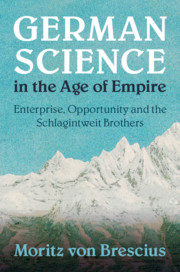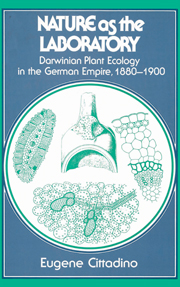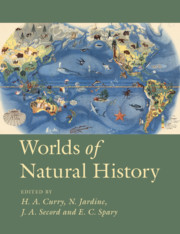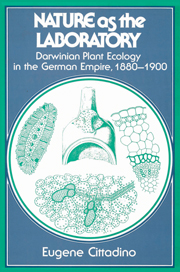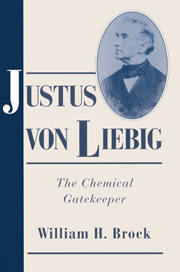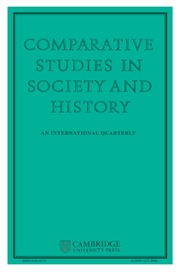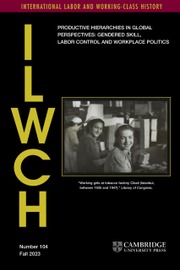German Science in the Age of Empire
This seminal study explores the national, imperial and indigenous interests at stake in a major survey expedition undertaken by the German Schlagintweit brothers, while in the employ of the East India Company, through South and Central Asia in the 1850s. It argues that German scientists, lacking in this period a formal empire of their own, seized the opportunity presented by other imperial systems to observe, record, collect and loot manuscripts, maps, and museological artefacts that shaped European understandings of the East. Drawing on archival research in three continents, von Brescius vividly explores the dynamics and conflicts of transcultural exploration beyond colonial frontiers in Asia. Analysing the contested careers of these imperial outsiders, he reveals significant changes in the culture of gentlemanly science, the violent negotiation of scientific authority in a transnational arena, and the transition from Humboldtian enquiry to a new disciplinary order. This book offers a new understanding of German science and its role in shaping foreign empires, and provides a revisionist account of the questions of authority and of authenticity in reportage from distant sites.
- Combines European and indigenous perspectives and agency in colonial exploration
- The book is based on sources written in eight languages, from seven countries, and collected from more than fifty museums and archives
- This lavishly illustrated book includes more than thirty-five colour figures
Reviews & endorsements
'Moritz von Brescius takes us to the heart of the fraught encounter between nineteenth-century science and power. Drawing on an extraordinary range of sources, he follows his fascinating protagonists through a world undergoing a process of globalisation that was as much about conflict as it was about connectivity. A brilliant and engagingly written case study of transnational science in the age of empire.' Christopher Clark, University of Cambridge
'This book is the definitive study of an extraordinary expedition. As well as telling the story of the Schlagintweit mission from a variety of perspectives, Moritz von Brescius situates it in the wider context of relations between imperial science, patronage and the state. This book will be required reading for historians of science and empire in Britain, Germany and South Asia.' Felix Driver, Royal Holloway, University of London
'… it is evidence of the worth of von Brescius' contribution that it is certain to serve as a starting point for further research into the varied scientific and cultural legacies of the Schlagintweits' venture.' David Murphy, Metascience
'… a real joy … meticulously researched and cast in elegant prose.' Linda Richter, German Historical Institute London Bulletin
'The author's work is an ambitious undertaking and, it must be said, a successful one. German Science in the Age of Empire is engagingly written and impressively researched … this book is highly recommended.' Bodie A. Ashton, Journal of World History
'It is … unquestionably a significant contribution to the history of science in modern Europe and the history of European imperialism-it is, in fact, an important illustration of how they are inextricably linked.' Nicholas A. Germana, The American Historical Review
'The scandals around the Schlagintweit brothers make for entertaining reading. More importantly, they illustrate the various strategies aspiring nineteenth-century scientists used to attract funding for their research and publications …' Hans Pols, Isis
Product details
March 2019Hardback
9781108427326
428 pages
237 × 158 × 24 mm
0.85kg
50 colour illus.
Available
Table of Contents
- Introduction: empires of opportunity
- 1. Entering the company service: Anglo-German networks and the Schlagintweit mission to Asia
- 2. Imperial recruitment and transnational science in India
- 3. An ingenious management of patronage communities
- 4. Making science in the field: a Eurasian expedition on the move
- 5. The inner life of a 'European' expedition: cultural encounters and multiple hierarchies
- 6. Contested exploration and the Indian Rebellion: the fateful year 1857
- 7. The Schlagintweit collections, India museums, and the tensions of German museology
- 8. Asymmetric reputations: memories of exploration and German colonial enterprise
- Conclusion.

